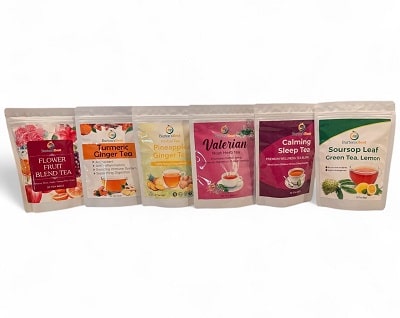Self-Care isn’t about grand gestures, luxury spa days, or expensive retreats. At its core, it’s about the small, consistent practices that remind your body and mind to slow down, reset, and restore balance. One of the simplest ways to weave mindfulness and Self-Care into your daily rhythm is through a cup of tea. The act itself is so ordinary that it’s easy to overlook, but when approached intentionally, tea becomes more than hydration—it transforms into a ritual of presence, calm, and connection.
The process starts before the tea even touches your lips. You fill the kettle, listen to the sound of water heating, watch the steam begin to rise. These sensory cues are small anchors that pull your attention out of the whirlwind of daily stress and into the present moment. When you scoop loose leaves or open a bag, you’re engaging your senses—color, texture, aroma. This is mindfulness at work. It’s not about emptying your mind; it’s about noticing. And in noticing, you create space. That space is the foundation of Self-Care.
The steeping itself teaches patience. In a world obsessed with instant gratification, waiting three to five minutes for water to coax out the compounds of herbs and leaves is an act of resistance. It’s also an act of respect—respect for the plants, for your body, and for the time it takes to prepare something nourishing. When you sit with that waiting, you remind yourself that slowing down isn’t a luxury; it’s necessary.

Certain teas naturally lend themselves to Self-Care rituals. Chamomile, with its soft floral flavor, is a gentle evening companion that signals it’s time to wind down. Peppermint is bright and refreshing, clearing both the palate and the mind, a great option when you need a mid-afternoon reset. Valerian root, earthy and grounding, helps prepare your nervous system for deep rest, reminding you that recovery is as much a part of health as movement and productivity. Even hibiscus, tangy and vibrant, brings antioxidants and a sense of vitality, helping you feel refreshed as you care for your body from the inside out.
But the real magic is less about which tea you drink and more about how you drink it. Instead of scrolling on your phone or rushing to check email, use tea time as a boundary. Step away from noise. Hold the warm cup in your hands. Feel the heat seep into your palms. Breathe in the aroma before your first sip. These tiny actions engage your parasympathetic nervous system, signaling safety and calm. Physiologically, your heart rate slows, stress hormones drop, and digestion improves. This is the body’s way of responding to mindful Self-Care.
Tea also offers connection. Sharing a pot with a loved one, a friend, or even during a meeting can shift the energy of interaction. Suddenly, it’s not just about caffeine or quenching thirst—it’s about creating a shared pause. That pause is where presence, listening, and authentic connection thrive. In a culture that glorifies busyness, these pauses are powerful forms of Self-Care, for you and for those around you.
Building a tea ritual doesn’t require elaborate equipment or rare herbs. All it takes is consistency. Maybe it’s a cup of green tea to start the day with focus, peppermint after lunch for digestion, and chamomile before bed. Each cup becomes a checkpoint in your day to slow down, tune in, and remind yourself that you matter.
Self-Care is about more than the physical health of your body; it’s about how you treat yourself in the quiet, unremarkable moments. Tea provides the perfect framework for this—simple, ancient, and effective. Every sip is an opportunity to choose mindfulness over distraction, calm over chaos, and restoration over depletion. That’s the true power of turning tea into a Self-Care practice.






